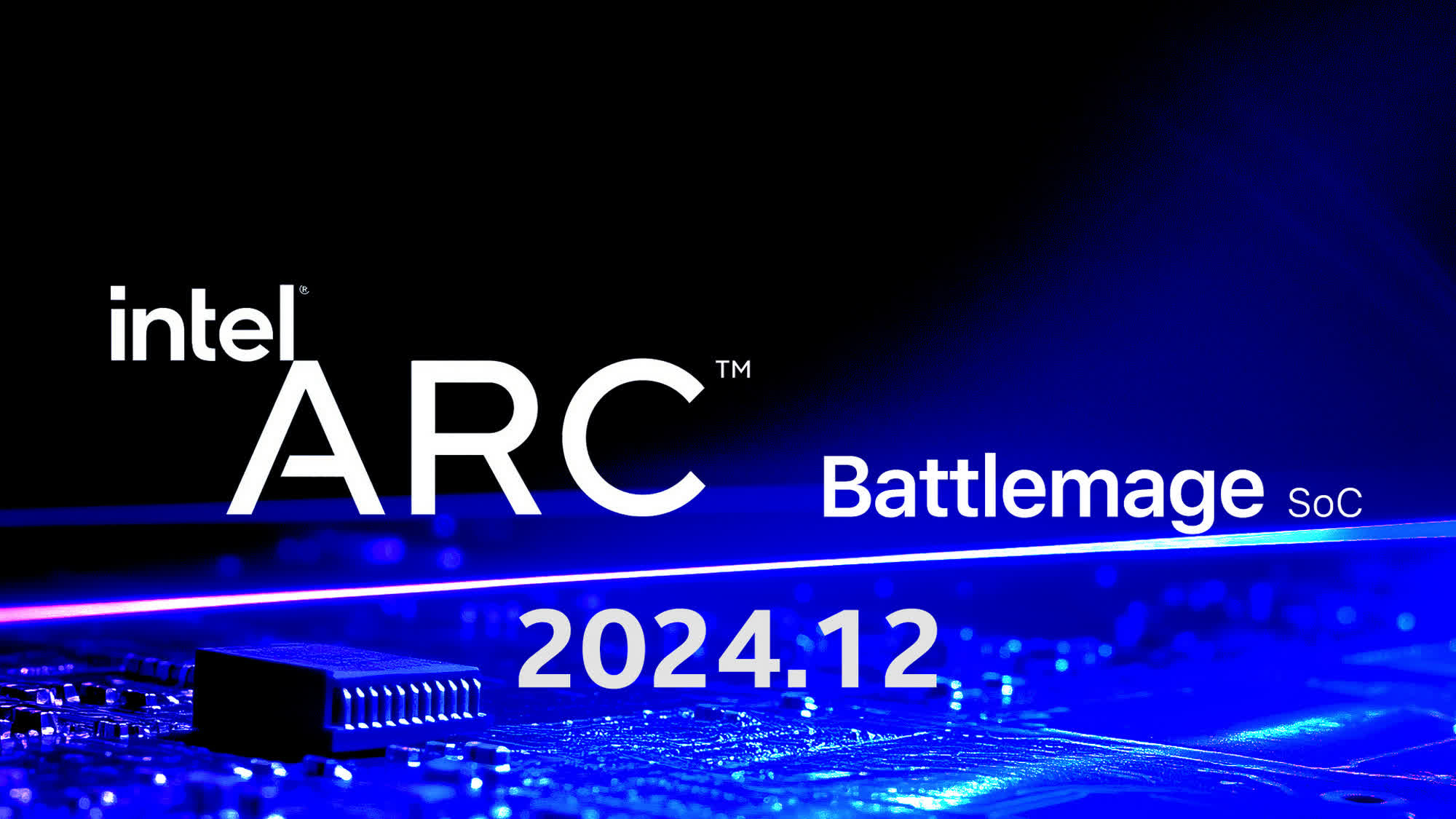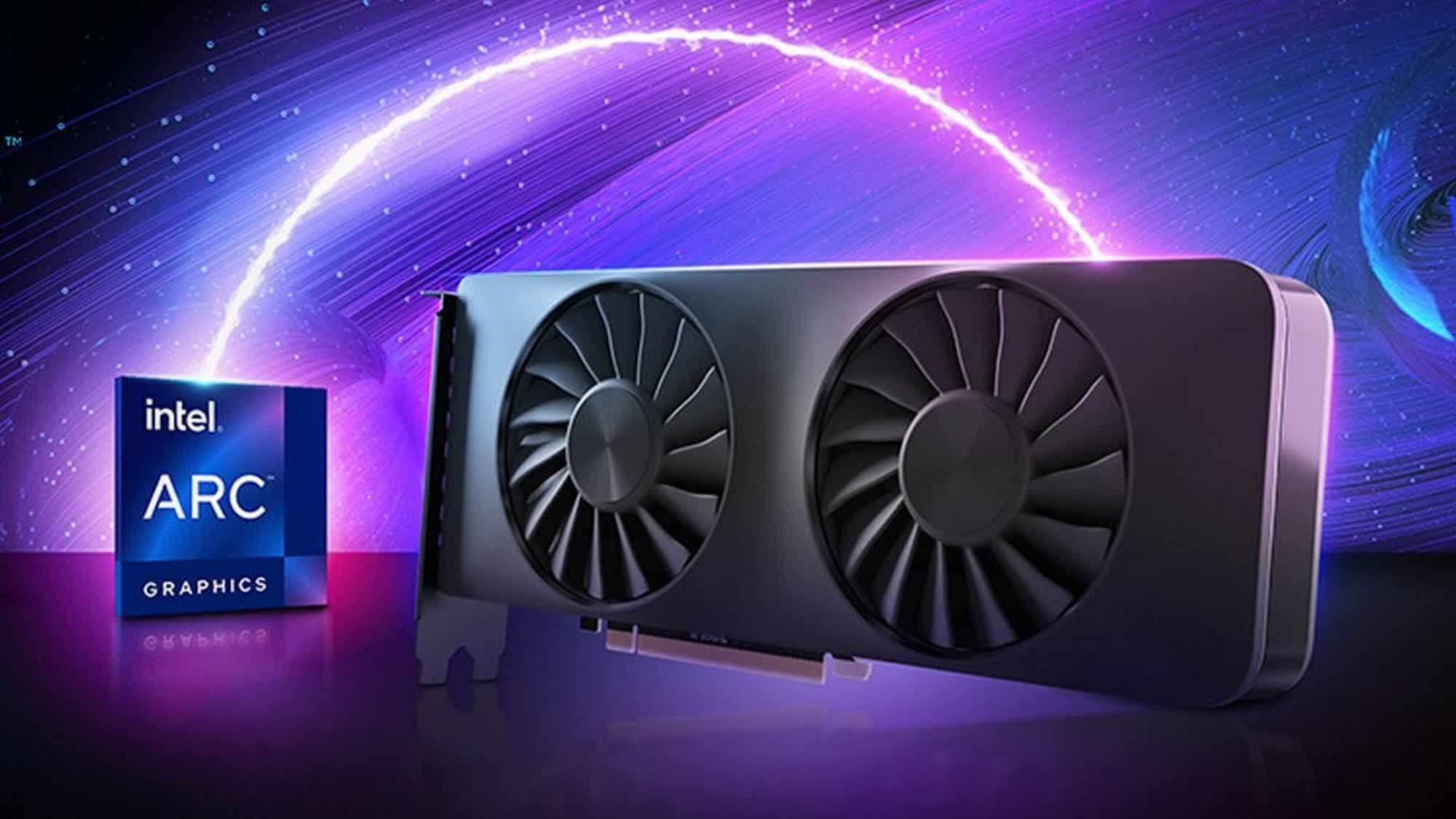Rumor mill: Intel is rumored to unveil its Arc "Battlemage" discrete GPUs in December, just in time for the holiday season. Previous rumors suggested that the next-gen cards will launch by the end of November in time for Black Friday, but the latest report suggests that users will have to wait a little longer to get their hands on an Xe2 graphics card.
The news comes from Japanese tech blog Gazlog, which published an image that's said to be an official teaser from Intel for its Battlemage announcement date. The image was later shared on X by well-known data miner Tomasz Gawronski.
A similar timeline was mentioned earlier this month by prolific tipster Golden Pig Update Pack, who claimed that Intel will announce Battlemage before AMD and Nvidia launch RDNA 4 and Blackwell (RTX 5000-series), respectively, at CES 2025 in January. However, the authenticity of the latest image and the earlier report could not be verified, so take them with a grain of salt for now.
Meanwhile, another X post rebuffs earlier speculation that Battlemage could be the last hurrah for Intel's discrete GPU ambitions. According to the generally reliable tipster @SquashBionic, Battlemage will not be Team Blue's last discrete GPU, meaning Xe3 "Celestial" is still under active development. However, there's no immediate word on when cards based on these dies might arrive.
It is worth noting that Intel originally debuted Battlemage integrated GPUs with its Lunar Lake (Core Ultra 200V) chips earlier this year, but many are waiting for the discrete cards to see how they match up against competition from Nvidia and AMD. Some recent benchmarks suggested that the upcoming cards may offer similar performance compared to AMD's RDNA 3.5, but the leak is yet to be verified.
Intel is reportedly working on three Battlemage GPUs, including Arc BMG-G31, Arc BMG-G21, and Arc BMG-G10. According to multiple leaks, G21 is designed for mid-range systems, while G10 is the bigger silicon, aimed at the premium end of the market. The G31 die, which leaked more recently, could feature up to 32 Xe-cores and is believed to be meant for the entry-level market.

